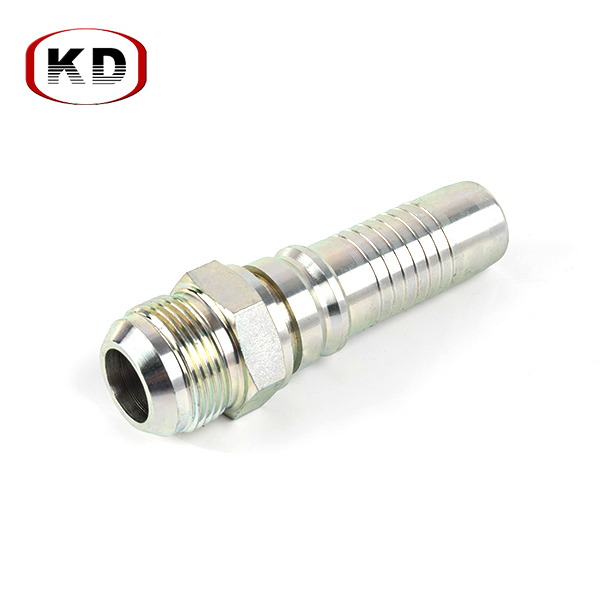Many years of foreign trade experience.
Strong production capacity, and massive stock to make sure the delivery time.
ISO quality process to make sure every piece qualifies.
One-to-one service, OEM service, provides alternative efficient solutions.

 By Admin
By Admin
Temperature Range: Interlock hose fittings are engineered to withstand a wide range of temperatures, making them versatile for use in diverse industrial and commercial applications. The materials used, such as stainless steel, carbon steel, and brass, are selected based on their thermal properties and application requirements. Stainless steel fittings, for instance, offer exceptional heat resistance and can operate effectively within temperatures ranging from -40°C to over +400°C, depending on the specific alloy and environmental conditions. This broad temperature tolerance ensures that interlock hose fittings maintain structural integrity and performance across various operational environments, from extreme cold to high-temperature settings.
Material Compatibility: The choice of materials is critical for ensuring interlock hose fittings perform reliably under different temperature conditions and environmental stresses. Stainless steel is prized for its corrosion resistance, mechanical strength, and heat tolerance, making it ideal for applications where high temperatures or corrosive substances are present. Carbon steel fittings provide robustness and durability at lower cost, suitable for moderate temperature ranges and general industrial use. Brass fittings, known for their thermal conductivity and resistance to corrosion, are favored in applications requiring good machinability and moderate temperature stability.
Resistance to Environmental Factors: Interlock hose fittings are designed to resist a variety of environmental challenges, including moisture, humidity, chemical exposure, and UV radiation. These fittings are often employed in outdoor environments, industrial settings, and applications where exposure to harsh elements is common. Manufacturers may apply specialized coatings or treatments to enhance fittings' resistance to corrosion and environmental degradation, thereby extending their service life and ensuring consistent performance over time.
Impact on Seal Integrity: Temperature fluctuations can impact the sealing effectiveness of hose fittings, particularly at extreme temperature ranges. Proper selection of fittings rated for specific temperature conditions is essential to maintain tight seals and prevent leaks or seal failures. Factors such as thermal expansion and contraction of materials must be considered to ensure fittings maintain reliable sealing under varying operational temperatures. Proper installation techniques, such as torque specifications for tightening fittings, help optimize seal integrity and performance.
Insulation and Protection: In environments where extreme temperatures are encountered, additional insulation or protective measures may be necessary to optimize the performance and longevity of interlock hose fittings. Insulating materials or thermal sleeves can be applied to fittings to minimize heat transfer or to protect against cold temperatures, reducing the risk of thermal stress and enhancing overall system reliability. These measures are particularly crucial in applications where temperature-sensitive components or processes require consistent operational conditions.
Application-Specific Considerations: Different industries and applications impose unique requirements on hose fittings regarding temperature stability and environmental resilience. For example, in automotive, aerospace, or chemical processing industries, where temperature fluctuations and exposure to aggressive chemicals are common, fittings must withstand rigorous operating conditions without compromising performance or safety. Manufacturers provide detailed technical specifications and guidelines to assist in selecting fittings that align with specific application needs, ensuring optimal performance and reliability in challenging environments.
JIC Male 74°Seal Highly secure Efficient Interlock Fittings
